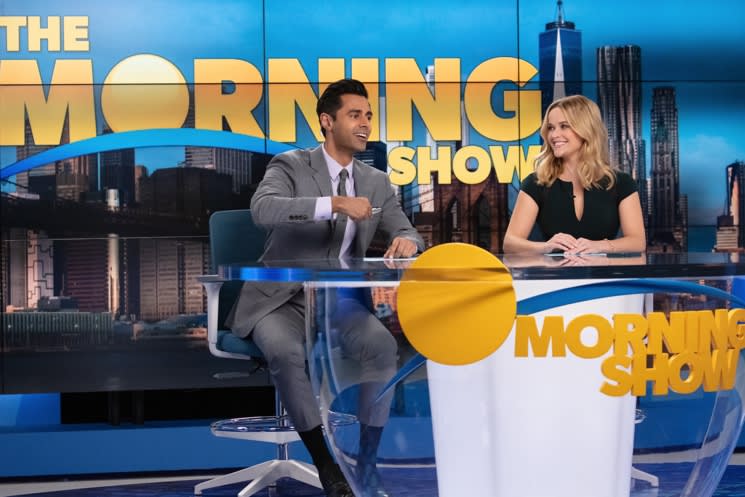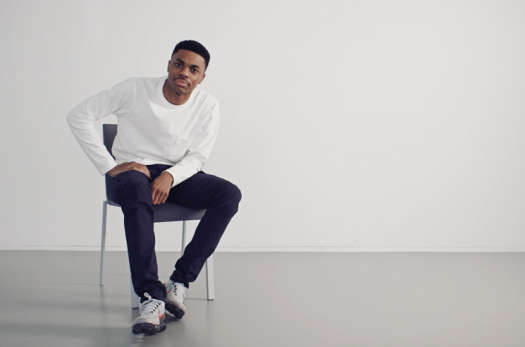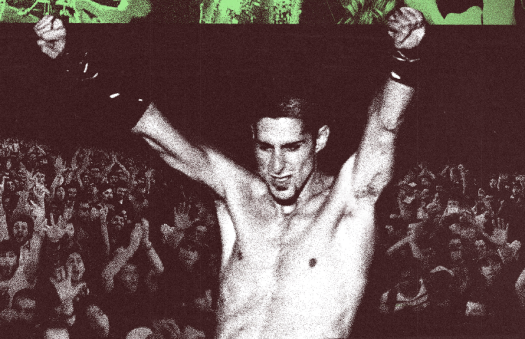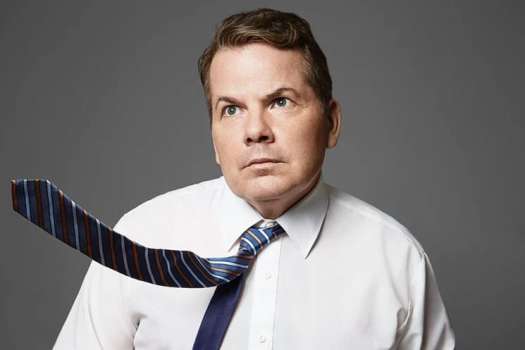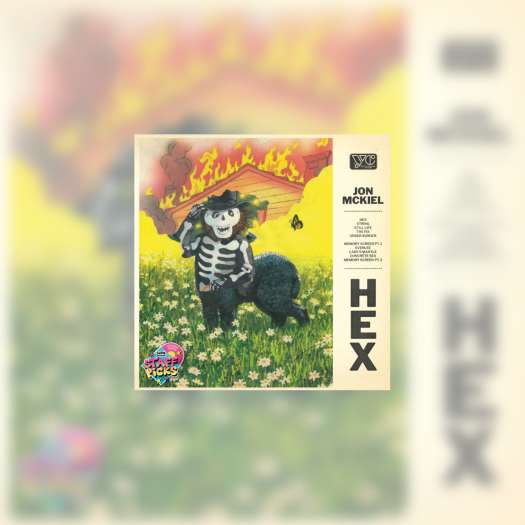Apple TV+'s The Morning Show tackled some big issues in its Emmy-nominated first season — namely the #MeToo movement, as Alex Levy (Jennifer Aniston) and Bradley Jackson (Reese Witherspoon) joined forces to take down Fred Micklen (Tom Irwin) and Mitch Kessler (Steve Carell), who contributed to a toxic work environment.
The second season, which premieres tomorrow (September 17), continues this approach — this time by addressing the pandemic and how each character deals with it while also trying to survive the aftermath of the first season.
New to this season is former Daily Show correspondent and Patriot Act host Hasan Minhaj, who joins the cast as Eric Nomani, the new host of The Morning Show alongside Witherspoon's Bradley.
We caught up with the actor to talk about how his real-life talk show gigs helped him step into Eric's shoes and how digital media fuels social divisions.
The producers mentioned that they were looking for someone who could work as both a morning show personality and as someone who could do nightly news. You were a late-night talk show host and it feels like you had the groundwork set up for you. Did that help you with playing Eric?
Totally. One of the things that spoke to me about the role of Eric was that he comes to Season 2, he's a young, charismatic, brash talent joining a news team that has been established for a very long time, and it looks a certain way and it acts a certain way. And Eric comes in and says, "Hey, I got something new to say. And I'm trying to move my way up the ranks just like you, Alex, just like you, Bradley." And I think that really spoke to me, because that's a feeling that I have navigating Hollywood. When I'm in Hollywood, I'm thinking, "Hey, I know there are not a lot of people like me on movie posters or TV posters, anchoring their own shows." This is not a world that we navigate. Oftentimes, our community has been deemed culturally irrelevant. Over the past 10 years, we've seen a lot of people who look like me start to establish cultural relevance, and people around the world are like, "Wow, we're finally doing it. We are destined for so much more." That energy that spoke to me. He wants to climb and make a name for himself. No different than Alex, no different than Bradley.
As the characters navigate a world that's in transition, there's also a lot of self-examination of both their public persona and their private persona. As someone who's also in the spotlight, how much of this internal debate resonated with you?
Yeah, I think I'm very lucky in the sense that my public and my private persona are the same. What I've done is I've tried to keep my private life relatively mundane. I married a doctor, a PhD candidate — Beena Patel, my wife. I married my college sweetheart. So it's allowed me to make my professional life — and the artistic choices that I make in the art world — really interesting and really compelling, [and to] kind of push me and feel dangerous. So unlike the characters that exist on The Morning Show, I'm not really out here in the streets, but it's fun to play somebody who's who's been in that world.
The series tackles so many interesting themes like US politics, COVID-19, cancel culture and corporate power structures. You've unapologetically tackled many of these topics as a talk show host before. How important is it that a show like this engage with all these issues while still being entertaining?
What's great about this show is it's not giving you the answers to these problems. So much of news media is: "Here's the headline, here's the byline, here's the take. In conclusion, you should probably feel this way about this issue." What's really interesting about this show is that it's navigating the greys: the greys of cancel culture, power dynamics and the #MeToo movement. Those are the big things that it's navigating in real time — and race at work. Those things, to me, are greys. And so much of life is navigating the greys. This show, specifically in this season, is navigating it, showing the human story behind navigating the greys.
It's very interesting that this series shows the state of media in today's times, and the power it holds in terms of storytelling. What do you think of the state of media in 2021 and what needs to change?
I think there's two things that are happening right now with digital modernity. The first is context collapse. Everything that is being put on Twitter, or on Instagram, or Snapchat, or, ultimately, news articles, is being designed for quick consumption. And it's being designed to quickly just collapse context. There's not a lot of room for deep nuance and understanding that is only possible through human communication and interaction, perhaps through books or longer [forms of media]. But short-form media has created this thing called context collapse.
I think the second major thing is that modern technologies are not good places for reconciliation, understanding, pulling two disparate people together. The algorithm incentivizes conflict and anger and intense emotions, whether it's puppy dog videos or people fighting with one another. But life is not those extremes. It can't just be the milk crate challenge, or people launching digital drone strikes against one another. Real reconciliation, real community-building happens in the middle. It happens in human-to-human interaction. And so I think that is the biggest problem with digital modernity and digital journalism.
The second season, which premieres tomorrow (September 17), continues this approach — this time by addressing the pandemic and how each character deals with it while also trying to survive the aftermath of the first season.
New to this season is former Daily Show correspondent and Patriot Act host Hasan Minhaj, who joins the cast as Eric Nomani, the new host of The Morning Show alongside Witherspoon's Bradley.
We caught up with the actor to talk about how his real-life talk show gigs helped him step into Eric's shoes and how digital media fuels social divisions.
The producers mentioned that they were looking for someone who could work as both a morning show personality and as someone who could do nightly news. You were a late-night talk show host and it feels like you had the groundwork set up for you. Did that help you with playing Eric?
Totally. One of the things that spoke to me about the role of Eric was that he comes to Season 2, he's a young, charismatic, brash talent joining a news team that has been established for a very long time, and it looks a certain way and it acts a certain way. And Eric comes in and says, "Hey, I got something new to say. And I'm trying to move my way up the ranks just like you, Alex, just like you, Bradley." And I think that really spoke to me, because that's a feeling that I have navigating Hollywood. When I'm in Hollywood, I'm thinking, "Hey, I know there are not a lot of people like me on movie posters or TV posters, anchoring their own shows." This is not a world that we navigate. Oftentimes, our community has been deemed culturally irrelevant. Over the past 10 years, we've seen a lot of people who look like me start to establish cultural relevance, and people around the world are like, "Wow, we're finally doing it. We are destined for so much more." That energy that spoke to me. He wants to climb and make a name for himself. No different than Alex, no different than Bradley.
As the characters navigate a world that's in transition, there's also a lot of self-examination of both their public persona and their private persona. As someone who's also in the spotlight, how much of this internal debate resonated with you?
Yeah, I think I'm very lucky in the sense that my public and my private persona are the same. What I've done is I've tried to keep my private life relatively mundane. I married a doctor, a PhD candidate — Beena Patel, my wife. I married my college sweetheart. So it's allowed me to make my professional life — and the artistic choices that I make in the art world — really interesting and really compelling, [and to] kind of push me and feel dangerous. So unlike the characters that exist on The Morning Show, I'm not really out here in the streets, but it's fun to play somebody who's who's been in that world.
The series tackles so many interesting themes like US politics, COVID-19, cancel culture and corporate power structures. You've unapologetically tackled many of these topics as a talk show host before. How important is it that a show like this engage with all these issues while still being entertaining?
What's great about this show is it's not giving you the answers to these problems. So much of news media is: "Here's the headline, here's the byline, here's the take. In conclusion, you should probably feel this way about this issue." What's really interesting about this show is that it's navigating the greys: the greys of cancel culture, power dynamics and the #MeToo movement. Those are the big things that it's navigating in real time — and race at work. Those things, to me, are greys. And so much of life is navigating the greys. This show, specifically in this season, is navigating it, showing the human story behind navigating the greys.
It's very interesting that this series shows the state of media in today's times, and the power it holds in terms of storytelling. What do you think of the state of media in 2021 and what needs to change?
I think there's two things that are happening right now with digital modernity. The first is context collapse. Everything that is being put on Twitter, or on Instagram, or Snapchat, or, ultimately, news articles, is being designed for quick consumption. And it's being designed to quickly just collapse context. There's not a lot of room for deep nuance and understanding that is only possible through human communication and interaction, perhaps through books or longer [forms of media]. But short-form media has created this thing called context collapse.
I think the second major thing is that modern technologies are not good places for reconciliation, understanding, pulling two disparate people together. The algorithm incentivizes conflict and anger and intense emotions, whether it's puppy dog videos or people fighting with one another. But life is not those extremes. It can't just be the milk crate challenge, or people launching digital drone strikes against one another. Real reconciliation, real community-building happens in the middle. It happens in human-to-human interaction. And so I think that is the biggest problem with digital modernity and digital journalism.
